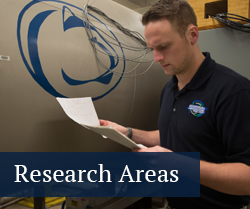
Funding
Each student admitted to the Graduate Program in Acoustics, and who has not already arranged funding, is considered for support with an assistantship. A student given an assistantship receives a stipend and a grant-in-aid for tuition; this stipend, but not the tuition, is taxable. In general, the amount of the stipend provided by an assistantship depends on the person’s standing as a graduate student (i.e., earned bachelor’s or ; passed Ph.D. candidacy or comprehensives). Most assistantships are one half-time during the academic year, and the equivalent of one-half time during the summer. Summer assistantships typically do not carry a grant-in-aid for tuition. Graduate assistantships cover 80% of the cost of the Penn State provided student health insurance.
The graduate assistantship is a vehicle for providing a stipend to help meet living and other incidental expenses during graduate study. In exchange for this stipend, and also the remission of tuition fees, the student is expected to assist in the research and/or teaching programs associated with the program. As such, the student has an obligation to devote a minimum of 20 hours per week on average to his or her assistantship duties, for the duration of the eighteen-week period of the assistantship for each semester (12 weeks in the summer).
It should be noted that the period of the assistantship (18 or 12 weeks) is longer than the respective academic semesters, which means that the student’s commitment relative to the assistantship extends past the beginning and/or end of the semester. Therefore, it is imperative that the student communicates with the faculty member supervising the assistantship to determine when the student is expected to be available to perform his or her duties. Even though a graduate student may be granted a half-time assistantship, the amount of time this student may spend on his or her research may well exceed the 20-hour per week that one might traditionally associate with a half-time position. While some flexibility exists for fulfilling the obligations associated with an assistantship, the student is expected to coordinate his or her schedule with the faculty member who is supervising the assistantship.
Upon being offered an assistantship, the student will receive the "Terms of Offer" of a Graduate Assistantship, which outlines the conditions of the assistantship offer, including the date upon which the student is to report, and to whom he or she should report. Although an assistantship is taxable, it is not considered by the University to be compensation for work done. Instead, it is intended to help support a student during his or her graduate study. Should it become necessary for the student to withdraw from the University during the period of the assistantship, the assistantship will also be terminated. Periods of withdrawal are not excepted when determining time to completion for a degree.
Graduate assistants must have health insurance coverage that meets certain standards established by the University. Graduate assistants are eligible to participate in the health policy designated by the University, with the assistantship paying eighty percent of the individual annual premium with the remaining twenty percent being deducted from the student’s assistantship stipend. A student holding any graduate assistantship may not normally accept employment of any kind beyond that specified by his or her assistantship. A student may receive a concurrent fellowship supplement. In addition, the J. Jeffrey and Ann Marie Fox Graduate School regulates both the maximum and the minimum number of course credits a graduate student may take.
Both teaching and research assistantships are offered according to the anticipated needs of the program, as well as the support available. These assistantships have different responsibilities associated with them and are supported by different sources of funding. Assistantship support for each student will be reviewed at regular intervals. Normally, students who maintain regular academic status and who make adequate progress toward completing their degrees can expect continued support.
For more information about types of funding, please see below.
Research Assistantships
Research assistantships support students as they work on their thesis or dissertation research. These assistantships, unlike teaching assistantships, are funded by outside sources such as the Applied Research Laboratory, the state or federal government, or a private company. No University general funds are used for research assistantships, and so the number available will vary from year to year. They are supervised by the faculty member who has obtained the funding from a particular agency for a given project. Consequently, the availability of funds for support of new students depends on the success the faculty has in obtaining research grants. Two years is considered to be the normal duration of a research assistantship for an M.S. student, while 3-4 years would be normal for Ph.D. students.
Teaching Assistantships
Due to the nature of the Graduate Program in Acoustics, the availability of teaching assistantships is extremely limited. Students supported by teaching assistantships are involved with duties such as teaching the undergraduate acoustics laboratory classes for non-majors, grading problems and exams for instructors, or helping with advanced acoustics laboratories. Legislation passed by the University Faculty Senate requires that all newly appointed teaching assistants participate in a teaching assistant training program unless they can provide evidence of successful prior teaching experience; and that all new international teaching assistants take and pass a test of spoken English.
Fellowships
A limited number of fellowships are awarded by the Fox Graduate School to scholastically outstanding students. Fellows may not accept employment during the period of their appointments nor are they required to render any service to the University. Fellows receive stipends that vary with the particular award and usually receive grants-in-aid for tuition. For incoming students, the graduate admission application serves as the fellowship application. The College of Engineering also has a number of fellowships, ranging from $1,000 to $5,000 per year. These are intended as supplements to research assistantships and are generally awarded to outstanding incoming Ph.D. students. In addition, the Fox Graduate School grants Minority Graduate Scholars Awards to a limited number of qualified incoming students. Additional information about the above fellowships can be found in the Graduate Bulletin. External fellowships are also available from governmental agencies and foundations. Names of directories listing some possible sources of external funding can be found in the Graduate Bulletin, or in publications retained by the Associate Dean of research in the College of Engineering (101 Hammond Building).
Students granted fellowships should carry the same credit loads as half-time assistants. Normally, students who are making satisfactory progress will be awarded assistantships once their fellowships expire.
Advancing Master's Program
The Advancing Master’s Program provides assistance for the successful completion of a two-year master’s degree with a thesis for talented students with demonstrated financial need for selected majors in the Penn State College of Engineering. The AMP Scholars program offers scholarship funding up to $10,000 for each of two years and a mentoring and professional development program.
To learn more, visit the AMP web page or email Professor Julio Urbina at jvu1@psu.edu.



